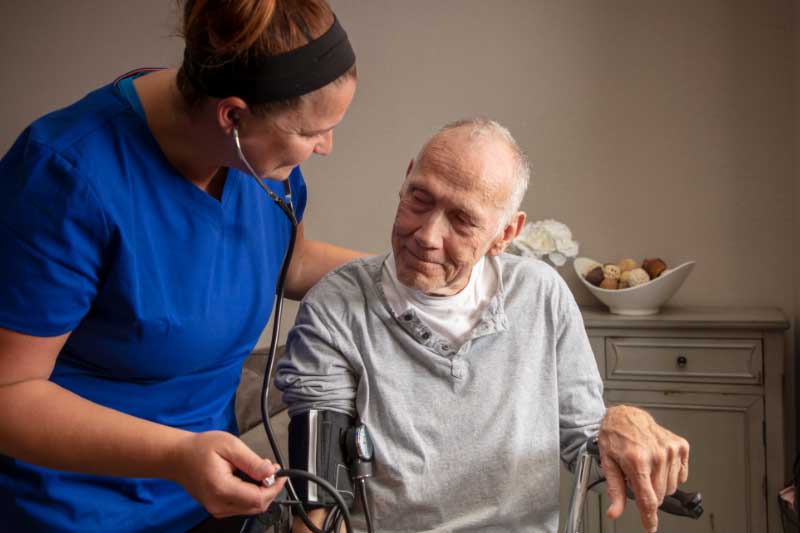Explore our comprehensive guide on hospice care, including who qualifies and what families can expect. Get the support and information you need during this critical time.
Navigating end-of-life care can be a deeply emotional and confusing time for families. Hospice care provides a supportive network for anyone dealing with a terminal illness, aiming to ease pain and offer comfort to both the patient and their loved ones. However, knowing if a loved one qualifies for such care can be complex. In this extensive guide, we will demystify the qualifications for hospice care, the experience, and the various aspects to be prepared for when considering this invaluable service.
What is Hospice Care?
Hospice care is a specialized type of care designed to provide support to patients with life-limiting illnesses. The goal of hospice is to focus on comfort and quality of life rather than curative treatments. It involves a team of health care professionals and volunteers who work together to address the physical, emotional, and spiritual needs of the patient and their family.
The Hospice Care Team
A key component of a hospice service is the interdisciplinary team. This typically includes:
- Hospice Physician: Oversees the patient’s care and serves as the medical director for the hospice group
- Registered Nurses: Provide skilled care, medication administration, and education to the family on how to manage symptoms
- Home Health Aides: Assist with daily care, such as bathing and dressing
- Social Workers: Offer counseling and aid in navigating the emotional and practical challenges of terminal illness
- Spiritual Care Providers: Support patients and families with their spiritual needs and end-of-life discussions
- Trained Volunteers: Offer various types of support, including companionship, respite, and assistance with errands
- Bereavement Counselors: Available to family members before and after the patient’s death to help them cope with their loss
Qualifying for Hospice Care
Hospice eligibility is determined by the patient’s condition rather than the specific diagnosis. In general, a patient may qualify for hospice if they:
- Have a life expectancy of six months or less, as determined by their doctor
- Decide to forego curative treatment or decide that treatment is no longer effective or desired
- Are experiencing chronic pain, and other symptoms that are difficult to manage
Qualifying for Hospice Care
Deciding on hospice care is an important and often difficult choice. Some key factors to consider are:
- The Patient’s Wishes: The patient’s own wishes should be at the forefront of the decision-making process.
- Potential Benefits: Hospice care offers holistic support for both the patient and their family.
- The Caregiver’s Ability: Family caregivers can receive significant support and respite through hospice services.
- Financial Considerations: Most forms of insurance cover hospice care, but it’s crucial to understand the specifics of the patient’s coverage.
What to Expect From Hospice Care?
Hospice offers a wide range of services, but the core focus is on managing symptoms and providing support to the patient and their family. Here are some of the services typically included in hospice care:
- Pain Management: The hospice team will work to manage the patient’s pain with medication and other techniques.
- Symptom Control: Hospice professionals will also help with other symptoms that can cause discomfort, such as nausea and shortness of breath.
- Medical Equipment and Supplies: Hospice programs provide necessary medical equipment, such as hospital beds, and medications at no cost to the patient.
- Visits and Care at Home: Most hospice care is provided at the patient’s home, but can also be arranged in a hospital or long-term care facility if needed.
- Round-the-clock Support: A nurse is typically on call 24 hours a day, seven days a week to address concerns and make home visits when necessary.
- Support for Caregivers: Hospice services extend to the family caregivers as well, including education and training, and bereavement support.
The Role of the Family in Hospice Care
Families are integral to the hospice care model. They often become the primary caregivers, with the support of the hospice team. It’s important for the family to be involved in the patient’s care, provide comfort, and communicate openly with the hospice team about the patient’s needs.
When to Start Hospice Care
The decision about when to begin hospice care is a personal one. Some patients and families opt to start hospice services as soon as the diagnosis is terminal, while others may decide when curative treatment is no longer an option. It’s important to remember that starting hospice care earlier can provide more time to benefit from the full range of services it offers.
Transitions in Hospice Care
Patients and their families should be prepared for the emotional and physical transitions that occur with hospice care. This can include:
- Changes in Medications: Some medications that were used to treat the illness may be discontinued, while others focused on comfort will be introduced.
- Shift in Care Goals: Rather than focusing on curing the illness, the care team will work to maintain the patient’s comfort and quality of life.
- Support Network: The transition to hospice care often involves creating new relationships with the hospice team and transitioning other healthcare providers out of the patient’s care.
Potential End-of-Life Support
For most, the end of life is a difficult mental and emotional period. Hospice care provides invaluable support during this time, including pain relief, spiritual support, and maintaining as much normalcy and comfort as possible. Families should communicate closely with the hospice team to ensure the patient’s last days are as peaceful as can be.
After Hospice: Bereavement Support
Hospice care’s support extends into the post-death period. The bereavement support component helps families grieve and transition through this challenging time, offering counseling, support groups, and resources to cope with the loss.
Advance Directives and Hospice
Having advance directives in place can significantly ease the transition to hospice care. These legal documents detail the patient’s preferences for end-of-life care should they become unable to communicate their wishes. Ensuring these documents are up-to-date and accurately reflect the patient’s current thoughts can help guide the course of their care.
Conclusion
Understanding hospice care and its various components is an important step in preparing for end-of-life situations. By recognizing the qualifications for hospice care and familiarizing oneself with the services offered, patients and their families can ensure they make informed decisions that offer the greatest comfort and support during a challenging time. Remember, hospice care is not about giving up; it’s about making the most of the time we have and finding peace in our final days.








